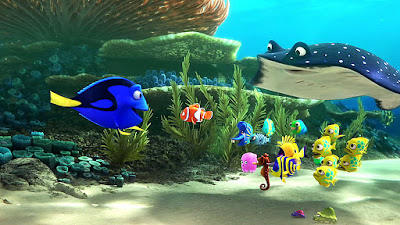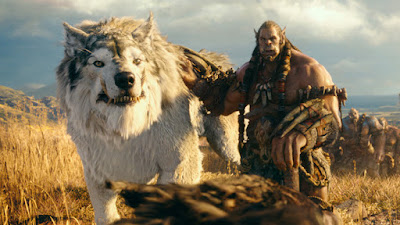Well before the homicidal tendencies of horror movie villains fell on ominous men wearing masks at Halloween or during summer camps at the lake, they were tucked away in the attic of a sorority house. Any aficionado of the slasher subgenre knows exactly what that phrase implies, but those less inclined to study the history have probably never even heard of Roy Moore’s notorious “Black Christmas.” Those are unfortunate sorts, many of whom have no doubt had their tastes molded by the trivial antics of lesser showmen in the crowded onslaught of scary movies. The irony of that proclamation is that the fanbase, usually quick to source benchmark origins for many of the ideas they hold dear, has been nowhere near as vocal in their respect of Moore’s film as many of the other key genre pictures from the past. Does that have to do with the continued obscurity of the endeavor, or the questionable reputation that slashers endure when held up against their more celebrated cousins? Whichever way you slice it, the resurgence of interest that came so long after its theatrical debut has been a muted affair, causing only ripples amongst those seeking knowledge of their favored field while others create more resounding echoes.
Tuesday, June 28, 2016
Sunday, June 26, 2016
The Reflecting Skin / ***1/2 (1990)
“The Reflecting Skin” begins with a scene of startling cruelty, in which three young boys mutilate a bullfrog on the road while a woman from town wanders nearby. Their goal: to use a slingshot on the amphibian and soak her dress in blood as she comes close to investigate. What exactly sets off this alarming “prank” is uncertain, but the events that follow offer startling clues that cast their behavior in a broader, more ominous light. Later, two of the boys taunt the third of the group, whose mother is dead; they make light of his misfortune until he bursts into tears. The mother of the primary observer is overheard in an obsessive compulsive rant that regards her own child as a disposable slob. Death (usually without explanation) begins to overtake their small community, and the arrival of a car carrying suspicious men – one who inappropriately caresses the side of one of the boy's faces – is viewed with stark foreshadowing by… well, no one other than the one child watching it happen. Slowly but surely the movie advances these cold realities into the most striking of tragedies, showing us the extremes of human misfortune (or mental illness, if you want to go that route) from eyes that may or may not be reliable in painting an accurate portrait of the truth. The movie speaks fervently of the “nightmare of childhood,” and perhaps a few long and painful minutes in the company of these characters are all one needs in reminding oneself of the luck we carry in living much simpler and joyous lives.
Thursday, June 23, 2016
Finding Dory / *** (2016)
Share in a conversation with a handful of loyal Pixar enthusiasts and you’ll discover very few commonalities between them. Over the course of twenty-odd years, the studio that mastered computer animation has given them a lifetime’s worth of diverse trophies to covet: yarns involving talking toys, busy bugs, cooking rats, machines that sense loneliness and even a few humans seeking adventure in the midst of personal grief, among others. Like the Disney name that oversees their output, they have become dependable facilitators of the most gentle of memories. But almost no consideration is complete without dealing with “Finding Nemo,” easily the most consistently celebrated film of their diverse lineup. On paper a mere story about the search for a clownfish stolen from the depths of the ocean is hardly that dynamic, but in execution it was a movie rich in skill and meaning; those who made it seemed as if they were weaving magic rather than just making yet another mainstream cartoon. Years marched by before its success translated to the most obligatory of marketing decisions – the promise of a sequel – but the thirst of the audience has scarcely diminished after the pass of thirteen years. Something about a reef full of delightful straight-shooters and gentle personalities instills a need in admirers for more, and the new “Finding Dory” is poised (at least at the box office) to quench that thirst.
Wednesday, June 22, 2016
Alice Through the Looking Glass / *** (2016)
Strange it must be to have a vivid imagination in the charge of a puritan social class. Just ask young inquisitive Alice: a wild spirit whose existence seems to tug at cultural restraints with certain stubbornness, she continues to persist in literary circles as a symbol of free thinking, a notion made all the more relevant since she happens to be a young girl in the era of impenetrable male ego. But what creator Lewis Carroll did to her over the course of two tripped out narratives says just as much about the curse of daydreams as it does about their virtue, even for an archetype. The farther one is willing to wander into the fantasy, the more inevitable the torment. And so Carroll’s notorious “Wonderland” stories dwell in the recess of school memories like awkward encounters with foreboding superiors. Some continue to find delight in the convoluted puzzles of young Alice’s adventures, but as a child I was swept under the tow of their underlying masochism; it’s as if the pages played like records of extreme aversion therapy, detailing all the scary and eccentric things that a girl could encounter without much in the way of joy to drive them.
Monday, June 20, 2016
Room / **** (2015)
A child’s imagination is not contingent on the closed walls of his reality. Adults that inhibit their growth are a curse to the endurance of a culture. Assuming that these sorts of insights were not already persistent in the mind of director Lenny Abrahamson when he made the difficult “Room,” what else would have been the driving influence of such an unpleasant story arc about a mother and child and their horrific imprisonment? The very thought of this premise makes the hair on the back of our necks stand at attention. And yet the wounding degree of the dramatic charge calls to mind an honor roll of stirring human stories that deal with troubling scenarios at the eruption of their conflicts. “Boys Don’t Cry.” “Monster’s Ball.” “Dancer in the Dark.” “Precious.” Such movies were not made great simply by the acknowledgment of their painful situations; they rose to prominence because their directors and actors swam the depths of their emotional causes, and emerged as voices in the wilderness of genuine human suffering. Here is a movie so overwhelming in its conviction that it’s a wonder the two lead stars, Brie Larson and Jacob Tremblay, are able to wander through the material with such firm dedication. But they do, and their resonating endeavors concluded with a rigid movie buff walking away from the experience with tears rolling down his face.
Tuesday, June 14, 2016
Warcraft / *1/2 (2016)
A great many brush strokes of creative dexterity have gone into building the universe of Blizzard’s treasured Warcraft saga, but few of them ever rise to the surface in the first live action movie about the popular game series. How do I know that’s the case? Because I, dear reader, have been an avid player (and reader) of the notorious PC phenomenon for nine years – indeed a treasured pastime that has ebbed and flowed with consistent prominence nearly as much as going to the movies has in recent times. Never one to be loyal to a hobby for longer than a few entertaining months, however, the ongoing hold of “Warcraft” is as bewildering to me as it might be to those unaware of my personal pleasures. It persists like a story you play with in your mind. And that is not an isolated feeling, otherwise the necessity to take the concept into the footholds of cinematic interpretation would have never gone this far. Couple that with the dueling perspectives of video game-to-film trends (seldom successful and usually disastrous) and a reputable director standing at the helm (Duncan Jones, the master behind “Moon”), and what arrives in theaters isn’t so much a standard action flick as it is a predestined clash between cinema enthusiasts and players of the game, both of whom will no doubt be measuring the final result with entirely different gauges.
Saturday, June 11, 2016
The Lobster / ***1/2 (2016)
There are two ways that viewers can approach “The Lobster” – either as a facetious dark romantic comedy, or as a metaphor about the decay of civilization. For those trained to think more about surface objectives – certainly the most direct path for rousing curiosity – it is the kind of endeavor that may easily alienate one’s simple desires for payoffs and escapism; the premise is a defiant opposition to decipherable cinematic logic, seemingly drawn out of quirks and movements that would suggest insanity in most traditional undertakings. That others would never be able to find the material funny, furthermore, is certainly the most minor of its potential offenses; so abstract is this universe of paradoxical impulses that one is never privy to understanding the rules, even apart from the obligatory misfortune that follows people as they attempt to find (or rebel from) companionship. Yet for anyone well-versed in the more defining tendencies of the early movie auteurs, there is an ability to go subterranean with this kind of experiment. For all the talk of how traditional values – like a story, characters and a climax – often mask the underlying psychology of intelligent filmmakers, rare is the moment when they step beyond their own irony in order lead us outside the sphere of traditional human psychology.
Friday, June 3, 2016
X-Men: Apocalypse / *** (2016)
There’s a sly exchange between characters in “X-Men: Apocalypse” that confronts the preconceived attitude of filmgoers at action movies: specifically, that third chapters in trilogies are usually the worst when it comes to offering a thorough payoff. This morsel of wisdom is uttered during a very quick scene showing a handful of young mutants exchanging conflicting opinions as they leave a movie theater showing “Return of the Jedi,” the third “Star Wars” film; when one immediately speaks up in protest of those notorious third chapters, all those present nod in collective agreement. And if that’s as widely accepted as an attitude in this climate as it is with mere characters, then it is no wonder Bryan Singer, the loyal filmmaker behind many of the better “X-Men” movies, integrated this morsel: after the failure of so many other pictures in many of these comic book series (including the last “X” story arc, which ended with the awful “The Last Stand”), this is a director fully aware of the destinies that await lengthy film excursions. Certainly a handful in the audience might find some cruel irony in that sentiment as “Apocalypse” – also a third film in a series – thoroughly disinterests them, but those are the ones looking in from an unreasonable context. This is in no way the ambitious or intricate achievement that “Days of Future Past” was, nor does it aim to conquer the most zealous narrative summit. But what it lacks in the pitch of liveliness it more than makes up for in character exposition and effective trickles of story progression.
Subscribe to:
Posts (Atom)








